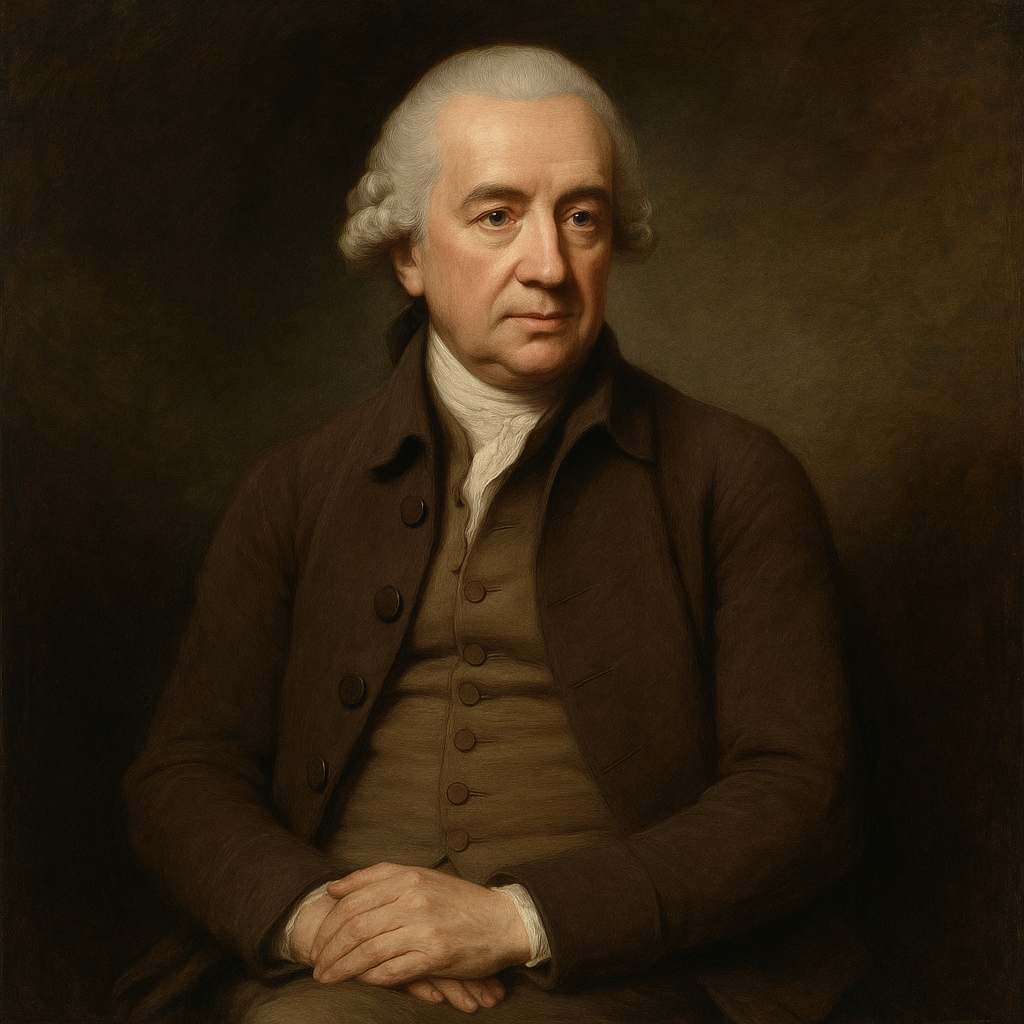Late Wisdom
George Crabbe
1754 to 1832

We've trod the maze of error round,
Long wandering in the winding glade;
And now the torch of truth is found,
It only shows us where we strayed:
By long experience taught, we know?
Can rightly judge of friends and foes;
Can all the worth of these allow,
And all the faults discern in those.
Now, 'tis our boast that we can quell
The wildest passions in their rage,
Can their destructive force repel,
And their impetuous wrath assuage?
Ah, Virtue! dost thou arm when now
This bold rebellious race are fled?
When all these tyrants rest, and thou
Art warring with the mighty dead?
George Crabbe's Late Wisdom
George Crabbe’s Late Wisdom is a reflective and introspective poem that delves into the themes of human experience, the passage of time, and the bittersweet nature of acquired wisdom. Written in Crabbe’s characteristic neoclassical style, the poem combines moral introspection with a keen awareness of human frailty. Through its structured form, vivid imagery, and philosophical musings, Late Wisdom invites readers to contemplate the paradoxes of knowledge and the limitations of human understanding. This essay will explore the poem’s historical context, literary devices, thematic concerns, and emotional impact, offering a comprehensive analysis of its significance within Crabbe’s oeuvre and the broader literary tradition.
Historical and Cultural Context
George Crabbe (1754–1832) was an English poet, surgeon, and clergyman whose works often focused on the lives of ordinary people, particularly in rural settings. Writing during the late 18th and early 19th centuries, Crabbe bridged the gap between the Augustan and Romantic periods. His poetry is marked by a commitment to realism, moral seriousness, and a rejection of the sentimentalism that characterized much of the literature of his time. Late Wisdom exemplifies Crabbe’s preoccupation with the human condition, reflecting the Enlightenment’s emphasis on reason and self-reflection while also hinting at the Romantic era’s fascination with individual experience and emotional depth.
The poem’s title, Late Wisdom, suggests a meditation on the wisdom that comes with age and experience. This theme resonates with the broader cultural and intellectual currents of Crabbe’s time, which saw a growing interest in the psychology of aging and the moral lessons learned over a lifetime. The poem’s tone of weary resignation and its focus on the limitations of human understanding also reflect the influence of Augustan satirists like Alexander Pope, who often explored the gap between human aspirations and reality.
Structure and Form
Late Wisdom is composed of four quatrains, each following a consistent ABAB rhyme scheme. This regular structure mirrors the poem’s thematic focus on order and reflection, contrasting with the “maze of error” described in the opening lines. The use of iambic pentameter lends the poem a stately, measured rhythm, evoking the voice of a speaker who has attained a degree of calm and perspective after a lifetime of turmoil.
The poem’s structure also reinforces its thematic progression. The first stanza introduces the central metaphor of life as a maze, while the second and third stanzas explore the speaker’s newfound ability to judge others and control their passions. The final stanza, however, undercuts this sense of mastery, suggesting that wisdom often arrives too late to be of practical use. This movement from confidence to disillusionment is a hallmark of Crabbe’s poetry, which frequently juxtaposes human ambition with the inevitability of failure.
Literary Devices and Imagery
Crabbe employs a range of literary devices to convey the poem’s themes and emotional resonance. The central metaphor of the “maze of error” (line 1) vividly captures the confusion and missteps that characterize the human journey. The image of the “torch of truth” (line 3) suggests enlightenment and clarity, but its light only reveals past mistakes, emphasizing the futility of hindsight. This paradoxical image sets the tone for the poem’s exploration of the limitations of wisdom.
The poem also makes effective use of personification, particularly in the final stanza, where Virtue is depicted as a warrior who arrives too late to the battlefield. This personification underscores the poem’s theme of belated understanding, as Virtue’s efforts to “arm” (line 13) and “war” (line 16) are rendered futile by the passage of time. The “bold rebellious race” (line 14) and “tyrants” (line 15) likely refer to the passions and vices that dominate youth, now subdued but not entirely vanquished.
Crabbe’s diction is precise and evocative, with words like “wandering” (line 2), “strayed” (line 4), and “rage” (line 10) conveying a sense of struggle and turmoil. The repetition of “Can” in lines 5–8 emphasizes the speaker’s confidence in their newfound judgment, while the shift to the conditional “Ah, Virtue!” in line 13 introduces a note of doubt and regret. This interplay between assertion and uncertainty is central to the poem’s emotional impact.
Themes and Philosophical Underpinnings
At its core, Late Wisdom is a meditation on the nature of wisdom and its relationship to human experience. The poem suggests that wisdom is both a blessing and a curse: it allows us to see clearly and judge rightly, but it often arrives too late to change the course of our lives. This theme is encapsulated in the image of the torch of truth, which illuminates past errors but offers no guidance for the future. The poem thus raises profound questions about the value of knowledge and the inevitability of regret.
Another key theme is the tension between reason and passion. The speaker boasts of their ability to “quell / The wildest passions in their rage” (lines 9–10), suggesting that wisdom brings self-control and emotional mastery. Yet the final stanza undermines this confidence, implying that the passions of youth are ultimately irrepressible and that virtue’s efforts to combat them are often in vain. This tension reflects Crabbe’s broader skepticism about human perfectibility, a theme that aligns him with the Augustan satirists while also anticipating the darker strains of Romanticism.
The poem also explores the relationship between individual experience and universal truths. The speaker’s reflections on their own life—their errors, judgments, and struggles—are presented as emblematic of the human condition. This universality is reinforced by the poem’s impersonal tone and abstract imagery, which invite readers to see their own lives reflected in the speaker’s journey. At the same time, the poem’s focus on the limitations of wisdom suggests that each individual must navigate their own maze of error, with no guarantee of finding the torch of truth.
Emotional Impact and Reader Response
Late Wisdom is a deeply poignant poem that resonates with readers on an emotional level. Its exploration of regret, disillusionment, and the passage of time speaks to universal human experiences, making it both relatable and thought-provoking. The poem’s tone of weary resignation is tempered by a sense of acceptance, as the speaker acknowledges the inevitability of their mistakes and the futility of dwelling on them. This balance between regret and acceptance gives the poem a bittersweet quality that lingers in the reader’s mind.
The poem’s emotional impact is heightened by its use of imagery and metaphor, which evoke a vivid sense of the speaker’s journey. The maze, the torch, and the battlefield are all powerful symbols that invite readers to reflect on their own lives and the lessons they have learned—or failed to learn. The final lines, with their poignant depiction of Virtue’s belated efforts, are particularly moving, as they capture the tragic irony of wisdom that comes too late.
Conclusion
George Crabbe’s Late Wisdom is a masterful exploration of the human condition, blending philosophical depth with emotional resonance. Through its structured form, vivid imagery, and nuanced themes, the poem invites readers to reflect on the nature of wisdom, the passage of time, and the inevitability of regret. While rooted in the intellectual and cultural currents of Crabbe’s time, the poem’s insights remain relevant today, offering a timeless meditation on the complexities of human experience. In its blend of moral seriousness and emotional sensitivity, Late Wisdom exemplifies Crabbe’s unique contribution to the literary tradition and his enduring appeal as a poet of the human heart.
This text was generated by AI and is for reference only. Learn more
Want to join the discussion? Reopen or create a unique username to comment. No personal details required!



Comments
No comments yet. Be the first to comment!